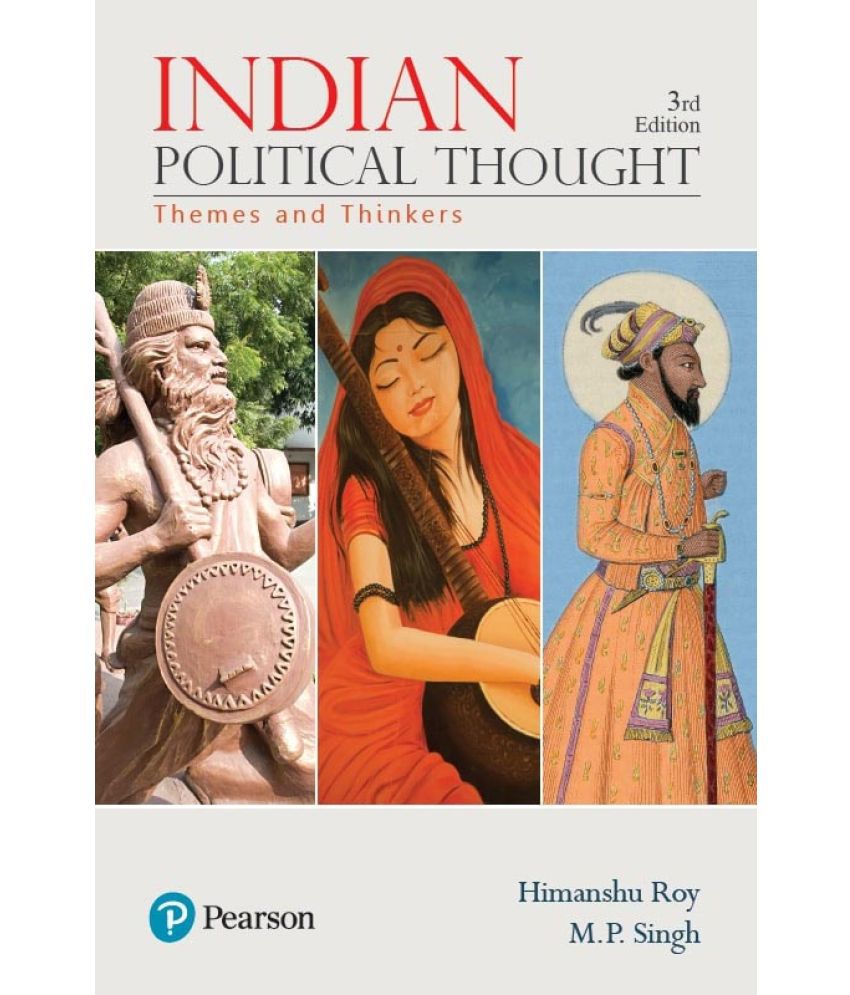In the third edition, we have tried to retrieve and resurrect the Indic thought by focusing on the works of pre-colonial thinkers. It also intends to posit this Indianness as the pivot of academic curriculum and public discourse. For this reason, works of four new thinkers namely Sankaradeva, Meerabai, Dara Shukoh and Swami Sahajanand Saraswati have been added to this edition. They represent different regions of India but, as said earlier, there is a common running theme of social integration and social emancipation in their work. • Indian Political Thought: Themes and Thinkers, Third edition, discusses the thought process of
important Indian political thinkers who range from ancient to modern times.
• New thinkers have been added in this edition, namely Sankaradeva, Meerabai, Dara Shukoh and Swami Sahajanand Saraswati.
• The chapters delve into a discussion on important themes, including Civil Rights, Nationalism, Democracy, Gender and Caste, Marxism, Socialism, Gandhism, Dhamma, Theory of State, Ideal Polity and Swaraj. 1. Dhamma: Buddha’s and Aśoka’s
2. Kautilya: Theory of State
3. Political Ideas of Thiruvalluvar
4. Manu: Social Laws
5. Exploring the Modern in Medieval: Political Ideas of Basava
6. Zia Barani: Good Sultan and Ideal Polity
7. Political Ideas of Kabir
8. Sankaradeva: Cultural Reforms and Social Integration
9. Women’s Freedom in Meerabai’s Bhakti
10. Political Philosophy of Tulsidas
11. Abul Fazl: Governance and Administration
12. Social and Political in Vemana’s Thought
13. Dara Shukoh’s Pluralism
14. Rammohan Roy: Civil Rights
15. Jotirao Phule: Social Justice
16. Tilak’s Nationalism and Swaraj
17. Narayana Guru
18. Vivekanand: Cultural Nationalism
19. Aurobindo: Nationalism and Democracy
20. Ramabai: Gender and Caste
21. Gandhi: Swaraj and Satyagraha
22. Jinnah: In Search of Political Power
23. Savarkar: Hindutva and Critique of Caste System
24. Swami Sahajanand Saraswati: Social Reforms and Democratic Praxis
25. Nehru: Ideas of Development
26. M.N. Roy: Twentieth-Century Renaissance
27. Periyar: Radical Liberalism
28. Ambedkar: Constitutionalism and State Structure 29. Ambedkar: Democracy and Economic Theory
30. Lohia: Democracy
31. Jayaprakash Narayan: Marxism, Democratic Socialism and Gandhism
Conclusion
IndexHimanshu Roy is Atal Bihari Vajpayee Senior Fellow, Nehru Memorial Museum and Library, Teen Murti House, New Delhi. His publications include Peasant in Marxism, Secularism and its Colonial Legacy, State Politics in India, Indian Political System (Pearson) and Patel.
Mahendra Prasad Singh is National Fellow, Indian Institute of Advanced Study, Shimla. He retired as the Professor and Head of the Department of Political Science and the Dean of Faculty of Social Sciences, University of Delhi. He had also served as a Director at the Indian Council of Social Science Research, New Delhi.

